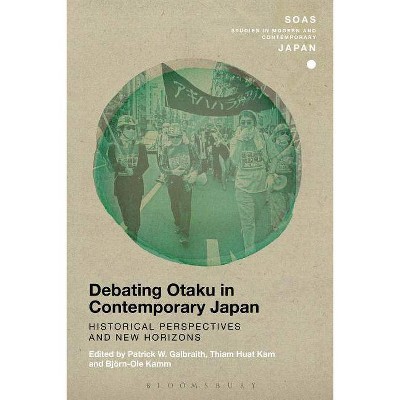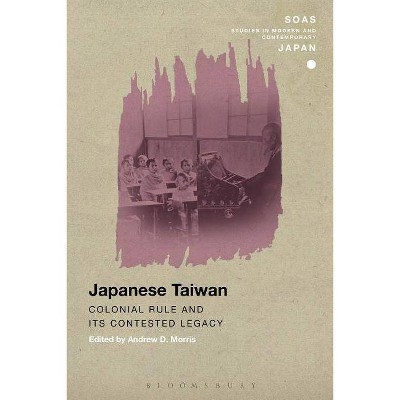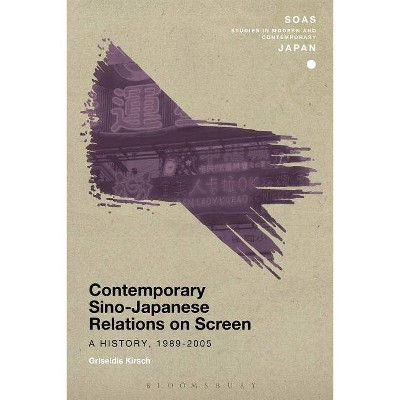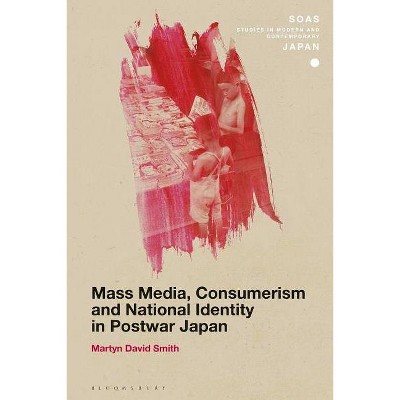The Uses of Literature in Modern Japan - (Soas Studies in Modern and Contemporary Japan) by Sari Kawana (Paperback)

Similar Products
Products of same category from the store
AllProduct info
<p/><br></br><p><b> Book Synopsis </b></p></br></br><i>The Uses of Literature in Modern Japan </i>explores the varying uses of literature in Japan from the late Meiji period to the present, considering how creators, conveyors, and consumers of literary content have treated texts and their authors as cultural resources to be packaged, promoted, and preserved. <br/><br/>As the printed word became a crucial form of entertainment and edification for an increasingly literate public in early 20th-century Japan, literature came to assume a variety of new uses. Touching upon a wide array of sources, Sari Kawana traces the ways in which literary works have morphed into different variants, ranging from textual (compilations, textbooks) and visual (film, manga, other media) to virtual and real world, through innovative publishing and reading practices. She takes up themes such as the materiality of texts, the role of publishers and advertising campaigns, the interplay between literature and other media, and the creation and dissemination of larger cultural fantasies tied to literary consumption. She stresses the agency and creativity with which readers engaged literary works, from divergent readings of propaganda literature to inventive adaptations of canonical texts in adjacent media, culminating in the practice of literary tourism. <br/><br/>Moving beyond close reading of texts to look at their historical context, the book will appeal not only to scholars of modern Japanese literature but also those studying the history of the book and modern Japanese cultural history.<p/><br></br><p><b> Review Quotes </b></p></br></br><br>[An] important step in bridging the fields of Japanese literary criticism and book history in English ... [This] book identifies a unique perspective on modern and contemporary literature and literary history.<br/>East Asian Publishing and Society<br><br>A masterful contribution to the fields of modern Japanese literature and modern Japanese history, Kawana's expertly researched and persuasively argued The Uses of Literature in Modern Japan reveals stunning new insights into the production, promotion, and pervasiveness of twentieth- and twenty-first century Japanese literature and its varied inter-media adaptations and translations in Japan and well beyond. Covering impressive ground, this book makes a compelling case for the continued economic and social relevance of literature.<br/>Karen Thornber, Professor of Comparative Literature and of East Asian Languages and Civilizations, Harvard University, USA<br><br>With the forensic skills of a literary detective, Sari Kawana uncovers new insights behind the production, packaging, and persistence of many modern Japanese classics. This innovative study takes scholarship on modern Japanese literature in exciting new directions.<br/>Rebecca Copeland, Professor of Japanese Language and Literature, Washington University in St. Louis, USA<br><p/><br></br><p><b> About the Author </b></p></br></br><b>Sari Kawana</b> is Associate Professor of Japanese at the University of Massachusetts Boston, USA. She is the author of <i>Murder Most Modern: Detective Fiction and Japanese Culture</i> (2008).
Price History
Price Archive shows prices from various stores, lets you see history and find the cheapest. There is no actual sale on the website. For all support, inquiry and suggestion messagescommunication@pricearchive.us




















